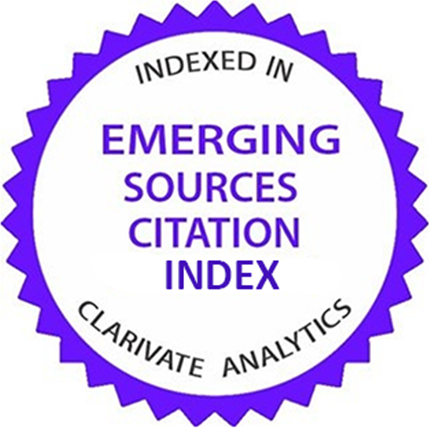Interferon beta-1a as a Candidate for COVID-19 Treatment; An Open-Label Single-Arm Clinical Trial
Abstract
Introduction: Since December 2019, an outbreak of Covid-19 has caused growing concern in multiple countries. Researchers around the world are working to find a treatment or a vaccine for Covid-19 and different treatment approaches have been tested in this regard.
Objective: This study was designed and conducted to assess the possible efficacy of Interferon beta-1a as a safe and efficient candidate for Covid-19 treatment.
Methods: This is an investigator-initiated, open-label, single-arm clinical trial. Twenty patients with suspected Covid-19, who were admitted to Sina hospital in Tehran, Iran, with moderate to severe symptoms, from 6 to 10 March, 2020, were enrolled. Patients were treated with antiviral and hydroxychloroquine combination therapy, along with subcutaneous Interferon beta-1a for 5 consecutive days. Baseline characteristics and findings during the course of admission and 5 days after discharge were recorded for all the patients.
Results: In total, 20 patients with suspected Covid-19 were included in this study, 12 (60%) of which were male. The median (Interquartile (IQ) range) of patients’ age was 55.5 (43-63.5). The most common symptom of the patients at onset of disease was fever. The median (IQ range) of duration of hospital stay was 5.0 (3-6) days. Only 2 cases were admitted to ICU. At the time of follow-up, 15 (94%) patients reported that they generally felt good and had oral tolerance, 1 patient had suffered from dyspnea, 5 patients had suffered from cough, none of them had experienced fever and no case of re-admission or death was reported after discharge.
Conclusions: Results of the current study are in favor of using Interferon beta-1a in addition to recommended antiviral treatment in Covid-19 patients.
2. Guan WJ, Ni ZY, Hu Y, Liang WH, Ou CQ, He JX, et al. Clinical characteristics of coronavirus disease 2019 in China. N Engl J Med. 2020;382(18):1708-20.
3. World Health Organization. Coronavirus disease (COVID-2019) situation reports: WHO; 2020 [Available from: https://www.who.int/emergencies/diseases/novel-coronavirus-2019/situation-reports/].
4. Cao B, Wang Y, Wen D, Liu W, Wang J, Fan G, et al. A Trial of Lopinavir–Ritonavir in Adults Hospitalized with Severe Covid-19. N Engl J Med. 2020;382(19):1787-99.
5. Rubin EJ, Baden LR, Morrissey S. Audio Interview: New Research on Possible Treatments for Covid-19. N Engl J Med. 2020;382(12):e30.
6. Shen C, Wang Z, Zhao F, Yang Y, Li J, Yuan J, et al. Treatment of 5 critically ill patients with COVID-19 with convalescent plasma. JAMA. 2020;323(16):1582-9.
7. Zou L, Ruan F, Huang M, Liang L, Huang H, Hong Z, et al. SARS-CoV-2 viral load in upper respiratory specimens of infected patients. N Engl J Med. 2020;382(12):1177-9.
8. Cinatl J, Morgenstern B, Bauer G, Chandra P, Rabenau H, Doerr H. Treatment of SARS with human interferons. Lancet. 2003;362(9380):293-4.
9. Haagmans BL, Kuiken T, Martina BE, Fouchier RA, Rimmelzwaan GF, Van Amerongen G, et al. Pegylated interferon-α protects type 1 pneumocytes against SARS coronavirus infection in macaques. Nature Med. 2004;10(3):290-3.
10. Hensley LE, Fritz EA, Jahrling PB, Karp C, Huggins JW, Geisbert TW. Interferon-β 1a and SARS coronavirus replication. Emerg Infect Dis. 2004;10(2):317.
11. Haagmans BL, Osterhaus AD. Coronaviruses and their therapy. Antiviral Res. 2006;71(2-3):397-403.
12. Kindler E, Thiel V, Weber F. Interaction of SARS and MERS coronaviruses with the antiviral interferon response. Advances in virus research. 96: Elsevier; 2016. p. 219-43.
13. Widagdo W, Okba NM, Raj VS, Haagmans BL. MERS-coronavirus: From discovery to intervention. One Health. 2017;3:11-6.
14. Morgenstern B, Michaelis M, Baer PC, Doerr HW, Cinatl Jr J. Ribavirin and interferon-β synergistically inhibit SARS-associated coronavirus replication in animal and human cell lines. Biochem Biophys Res Commun. 2005;326(4):905-8.
15. Sheahan TP, Sims AC, Leist SR, Schäfer A, Won J, Brown AJ, et al. Comparative therapeutic efficacy of remdesivir and combination lopinavir, ritonavir, and interferon beta against MERS-CoV. Nat Commun. 2020;11(1):1-14.
16. Talebpour M, Hadadi A, Oraii A, Ashraf H. Rationale and Design of a Registry in a Referral and Educational Medical Center in Tehran, Iran: Sina Hospital Covid-19 Registry (SHCo-19R). Adv J Emerg Med. 2020; In press.
17. Bernheim A, Mei X, Huang M, Yang Y, Fayad ZA, Zhang N, et al. Chest CT findings in coronavirus disease-19 (COVID-19): relationship to duration of infection. Radiology. 2020:200463.
18. Cheng PN, Marcellin P, Bacon B, Farrell G, Parsons I, Wee T, et al. Racial differences in responses to interferon‐β‐1a in chronic hepatitis C unresponsive to interferon‐α: a better response in Chinese patients. Journal of viral hepatitis. 2004;11(5):418-26.
19. Wan Y, Shang J, Graham R, Baric RS, Li F. Receptor recognition by the novel coronavirus from Wuhan: an analysis based on decade-long structural studies of SARS coronavirus. J Virol. 2020;94(7):e00127-20.
20. Cheung CY, Poon LL, Ng IH, Luk W, Sia S-F, Wu MH, et al. Cytokine responses in severe acute respiratory syndrome coronavirus-infected macrophages in vitro: possible relevance to pathogenesis. J Virol. 2005;79(12):7819-26.
| Files | ||
| Issue | Vol 4 No 2s (2020): COVID-19 | |
| Section | Original article | |
| Keywords | ||
| Antiviral Agents Clinical Trials as Topic COVID-19 Interferon beta-1a | ||
| Rights and permissions | |

|
This work is licensed under a Creative Commons Attribution-NonCommercial 4.0 International License. |










